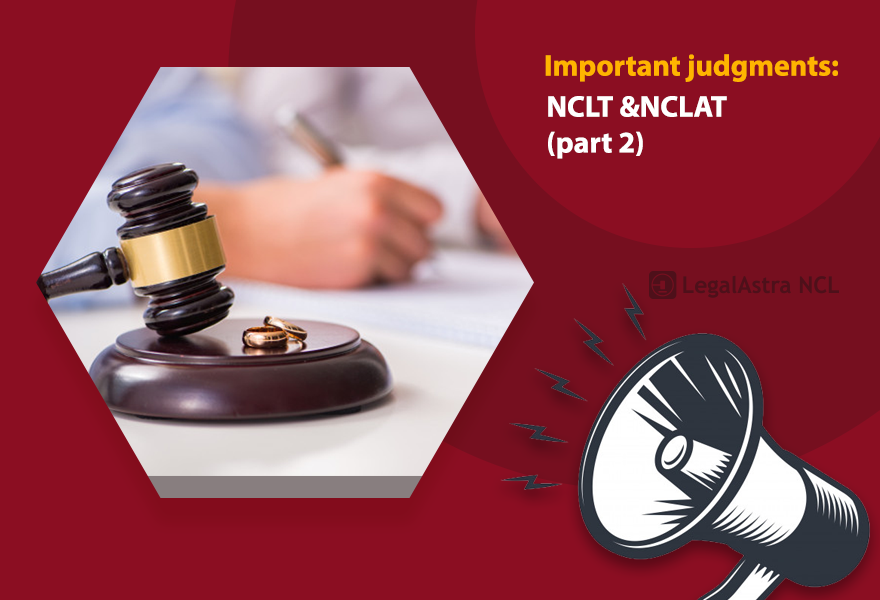- Information furnished from the Information Utility: a necessity? NCLT:DELHI
In the recently held judgment – M/s Dhankalash Distributors Pvt Ltd vs M/s Arena Superstructures Pvt Ltd the Principal Bench had held that the information produced from the Information Utility is not necessary when other necessary documents are available to establish a debt/default.

Easily search and access all NCLT / NCLAT and IBBI related orders in your Apple iOS / Google Android smartphones. Available for free trial period of 15 days. Click Here to download
The corporate debtor had defaulted in repaying Principal amount of Rs 15000000/- alongwith interest. The Corporate debtor and the Financial Creditor had entered into a inter corporate loan agreement where both parties had decided on repayment terms and conditions. In addition to the enforcement of the Inter corporate loan agreement the creditor had also issued various demand notices to the debtor.in addition to which the creditor had also filed Copies of entries in bankers’ book, confirmation of accounts by the Corporate debtor to financial creditor. The applicant had also filed the record of financial information- Form C from National E governance services limited. The Debtor in response stated that the Application had been filed without proper Certificate from the Information Utility and Financial services. For which the Fora held that default need not be proved only by way of furnishing the Certificate from Information Utility. After which the Forum had decalred moratorium and had appointed Mr Pawan Kumar as IRP.
- Prasanta Kumar Mitra & Ors. v. India Steam Laundry (P) Ltd. & Ors (September 5, 2018- Kolkatta High Court)
“Whether the term “all” and “including” in Section 434(1)(c) of the 2013 [Companies] Act are expansive in nature or the same is to be read in a restrictive manner?” The Court held: “The term ‘including’ in section 434(1)(c) of the 2013 Act is extensive and expansive and not restrictive in nature. Accordingly, Section 434(1)(c) of the 2013 Act that states “all proceedings under the Companies Act 2013 including proceedings relating to…” would include all matters, without any exception, pending before the District High Courts and High Court and all such matters would have to be transferred to the NCLT.”
The Court held that proceedings before the High Court as a result of the 1988 Amendment were included in the phrase “all proceedings” of Section 434(1)(c); and oppression and mismanagement cases could be brought within Section 434(1)(c) such that they would also have to be transferred to the NCLT.
Section 434 (1)(c)of the Companies Act- if it is proved to the satisfaction of the Court that the company is unable to pay its debts, and, in determining whether a company is unable to pay its debts, the Court shall take into account the contingent and prospective liabilities of the company.
- NCLAT set asides order passed by NCLT on making MCA a mandatory party in Section 7, 9 and 10 matters(NCLAT)
In a relief to the Ministry of Corporate Affairs (MCA), the National Company Law Appellate Tribunal (NCLAT) set aside an order of the Principal Bench of the National Company Law Tribunal (NCLT) which had directed that the MCA be made a party in all cases filed under the Section 7, 9, and 10 of the Insolvency and Bankruptcy Code (IBC).A three-member Bench of the NCLAT held that the NCLT order asking the Ministry to be made a party in all IBC cases, without giving the MCA a chance to present its side would have resulted in “serious miscarriage of justice, besides causing undue hardship”.
“In short, the impugned order making it applicable throughout the country to all the Benches of the National Company Law Tribunal is an untenable one and the said order suffers from material irregularity and patent illegality in the eye of law. As a logical corollary, this Tribunal sets aside the impugned order,” the NCLAT said.
